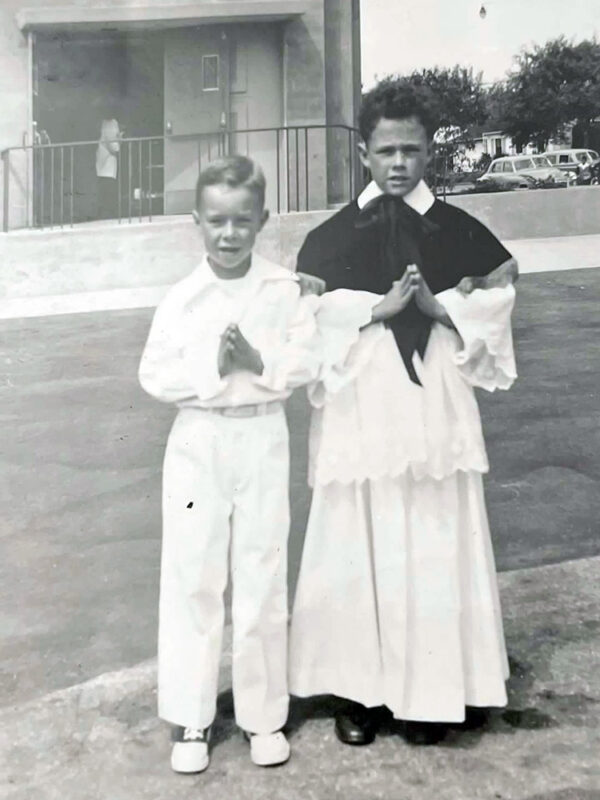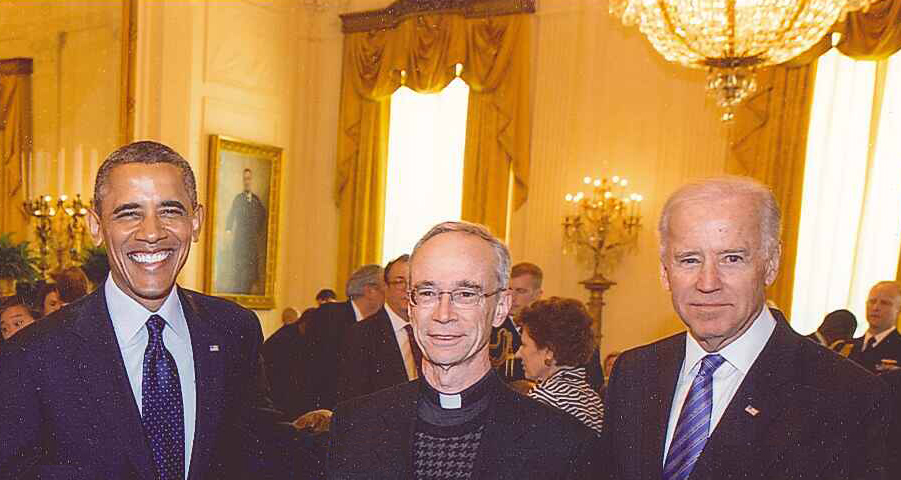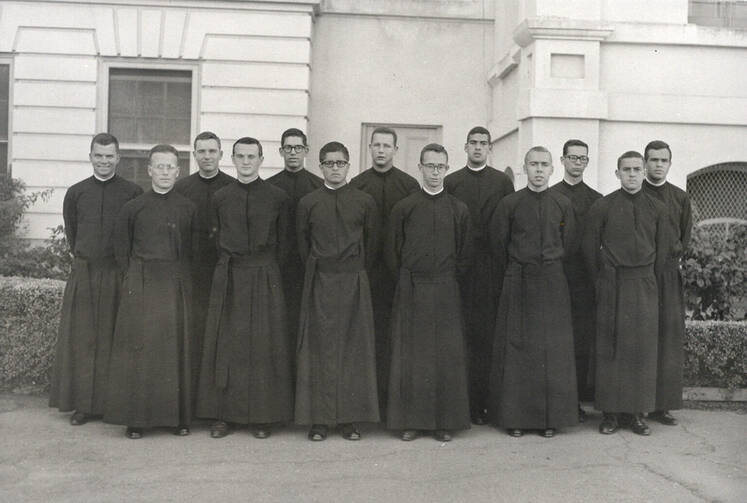(RNS) — Turning 80, as I do this month, tends to focus the mind on one’s mortality. I plan to live another 20 years, as did Jimmy Carter, but I could just as easily be dead in 20 months. I can no longer kid myself that death is a distant reality.
St. Ignatius Loyola, as part of his Spiritual Exercises, advises people to meditate on their deathbeds and reflect on their lives. In such a meditation, money is of little importance, even for nonbelievers. Most people wish they had spent more time with family and friends.
In such reflections, there is a temptation to focus on the negative and feel sorry for oneself — opportunities missed, roadblocks experienced and time wasted. I admit that as I began this column, that temptation was strong.
Instead, I am forcing myself to reflect on what I should be thankful for. Looking back, I now see that whenever a door closed (not getting a job I wanted, or getting fired), a better door opened.
But even before I was born, there is so much for which I should be thankful: the world God created, the Son he sent, the soldiers who won World War II, the scientists and artists who made the world a better place.

More personally, I should be grateful that my parents were good Catholics who followed the church’s teaching against birth control; otherwise I would not be here. This is ironic since I do not believe that every use of artificial contraception is wrong.
My parents already had three children, and my mother was almost 40 when she gave birth to me. She did not want to be a stay-at-home wife but loved teaching. My brother and I joke that we are pre-pill babies.
I am also grateful to the nurse at Children’s Hospital in Los Angeles who saved my life. After I was born, I suffered from infantile diarrhea, an easily treated disease today but one that took the lives of many children in the past. She simply held me with a bottle in my mouth and a diaper at my bottom until something stuck.
I should also mention the Sisters of Providence, who staffed St. Therese School in Alhambra, where I grew up. Despite having 30 kids in a classroom, they were dedicated and caring. I did well in math, loved to diagram sentences but had a bad memory and was always the first to sit down during spelling bees. I joke that I have very little RAM but a fast processor.
Luckily, I grew up before the internet. We were the last family in our neighborhood to get a television, so — not being athletic — I became addicted to reading.
My second-grade teacher planted the seed of my vocation. She asked the class, “What is the most important job in the whole world?” Being second graders, we suggested a fireman or policeman, with one smart kid saying the president. Sister set us straight by telling us that being a priest was the most important job in the world.
That settled it, I was going to be a priest. I lived across the street from the parish church, was an altar boy and went to Mass every day.
The sisters’ influence was so strong that I almost entered the high school diocesan seminary. This was in the late 1950s. We don’t have high school seminaries anymore.
My parents neither encouraged nor discouraged my vocation, leaving the decision up to me.
My brother thought it was a dumb idea and told me to talk to Father William Clasby, a colonel in the Air Force, who had been sponsored in the seminary by a childless couple who lived across the street. With a booming voice, he told me, “Go to Loyola High School,” which was enough to counter the sisters who said I would lose my vocation if I did not go to the seminary.

Once at Loyola, I fell in love with the Jesuits. These were men with whom I wanted to spend the rest of my life.
I entered the Jesuits before Vatican II, and my first four years were pre-reform. We were the pope’s marines, the hammer of heretics and the largest religious order in the church.
I loved the old church because I did not know any better. The transition for me and my contemporaries was difficult because there were few leaders, even among the Jesuits, who were prepared for the change. Eventually, we embraced the new church with enthusiasm.
When I was getting ready to begin a doctoral program in political science at the University of California, Berkeley, I asked advice from a fellow Jesuit who was studying at Stanford. His response surprised me: “Get a Jewish director.”
“If you have a Catholic director, he will be afraid the other faculty will think he is giving you a break because you are a priest. An agnostic won’t understand where you are coming from.”
On the other hand, “a Jewish professor loves having a priest as a student because every time he meets Catholics, he can tell them about the Jesuit priest who is studying under him.”
It did not hurt that my Jewish professors and mentors were also brilliant and famous political scientists: Nelson Polsby and Aaron Wildavsky.
Wildavsky suggested I write my dissertation on the politics of taxation, which led to a three-year stint as a lobbyist for tax reform before I began my writing career at America, a weekly magazine published by Jesuits.
As a person of faith, I believe that God was somewhere with me during all these 80 years of chance occurrences and decisions, so I am grateful not only to all who helped me but also to God. I am not sure God had it all planned out, but I think God was there to help me make the best of the opportunities that arose. If I had chosen differently, God would have stuck with me. And even when I screwed up, that was OK with God.
When I was young and arrogant, I thought I could change the world. First, I would reform myself and become a saint. That failed. Then, I was going to reform the tax system. That failed. Finally, I was going to reform the church. You know how that went.
When I interviewed Cardinal Joseph Ratzinger for my book “Inside the Vatican,” I asked him if he ever worried that he, like many of his predecessors at the Congregation for the Doctrine of the Faith, was suppressing theologians who would later be honored by the church.
His response: “You pray and do the best you can.” Probably the best advice I ever got. That is what I plan to do for the next 20 years.








